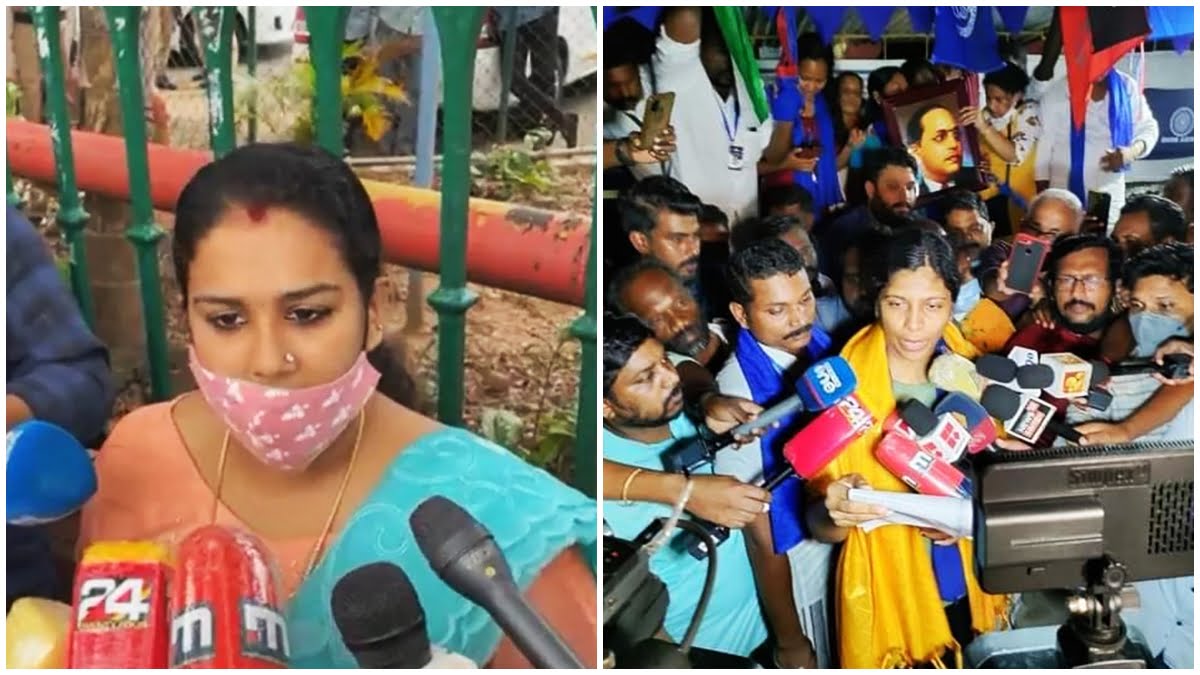Two recent high-profile cases of civil and human rights violations of women in Kerala expose the ruling neo-liberal left party’s evident failure to engage with the vectors of intersectionality that surround current debates about women’s rights and its discontents in the state. Discrimination against Dalit caste identity is the repressed content in both cases.
Both the young mother Anupama whose father gave away her newborn infant without her consent for purported adoption out of state, and the doctoral student and research scholar Deepa P Mohanan who began a hunger strike in October to protest the professional harassment and obstructive conduct she reportedly experienced at Mahatma Gandhi University have become lynchpins unraveling the spectacle of casteist discrimination that contaminates state government offices and internal party politics.
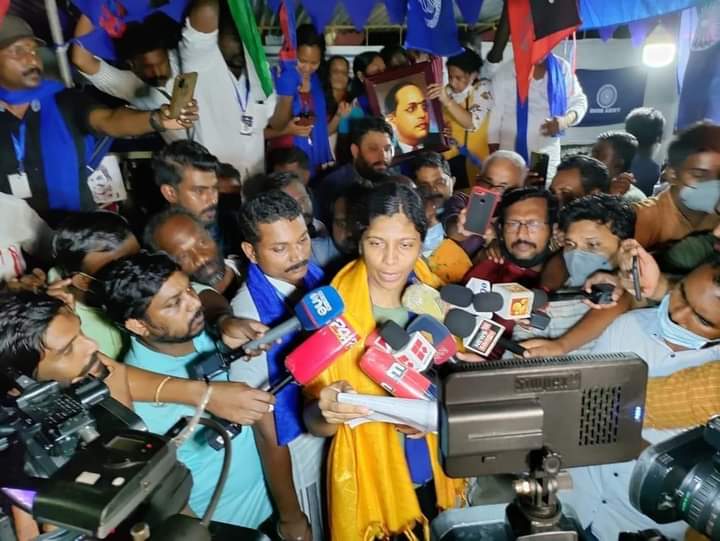
Both the young mother Anupama whose father gave away her newborn infant without her consent for purported adoption out of state, and the doctoral student and research scholar Deepa P. Mohanan who began a hunger strike in October to protest the professional harassment and obstructive conduct she reportedly experienced at Mahatma Gandhi University have become lynchpins unraveling the spectacle of casteist discrimination that contaminates state government offices and internal party politics.
Deepa P Mohanan’s case resolved recently with government intervention. The Director of MG University’s International and Interuniversity Centre for Nanoscience and Nanotechnology Dr. Nandakumar Kalarikkal was finally removed from his post for making casteist remarks against Mohanan. The university changed her research supervisor as per her demand, reinstated access to laboratory resources that were previously withheld from her, and extended her doctoral dissertation submission date to 2024.
Anupama’s case has an abducted and missing one-year old infant boy at its center. Shortly after she gave birth to her child on October 19 last year, Anupama’s father and mother forcibly removed her three-day old infant son from her. Anupama’s father, a CPI-M party worker, had previously denied her access to her partner Ajith during the term of her pregnancy. Media reports that Anupama’s father forcibly removed her from her partner because he did not approve of Ajith, who belonged to a Dalit Christian caste community, and who was in the process of securing a divorce from a previous marriage to marry Anupama.
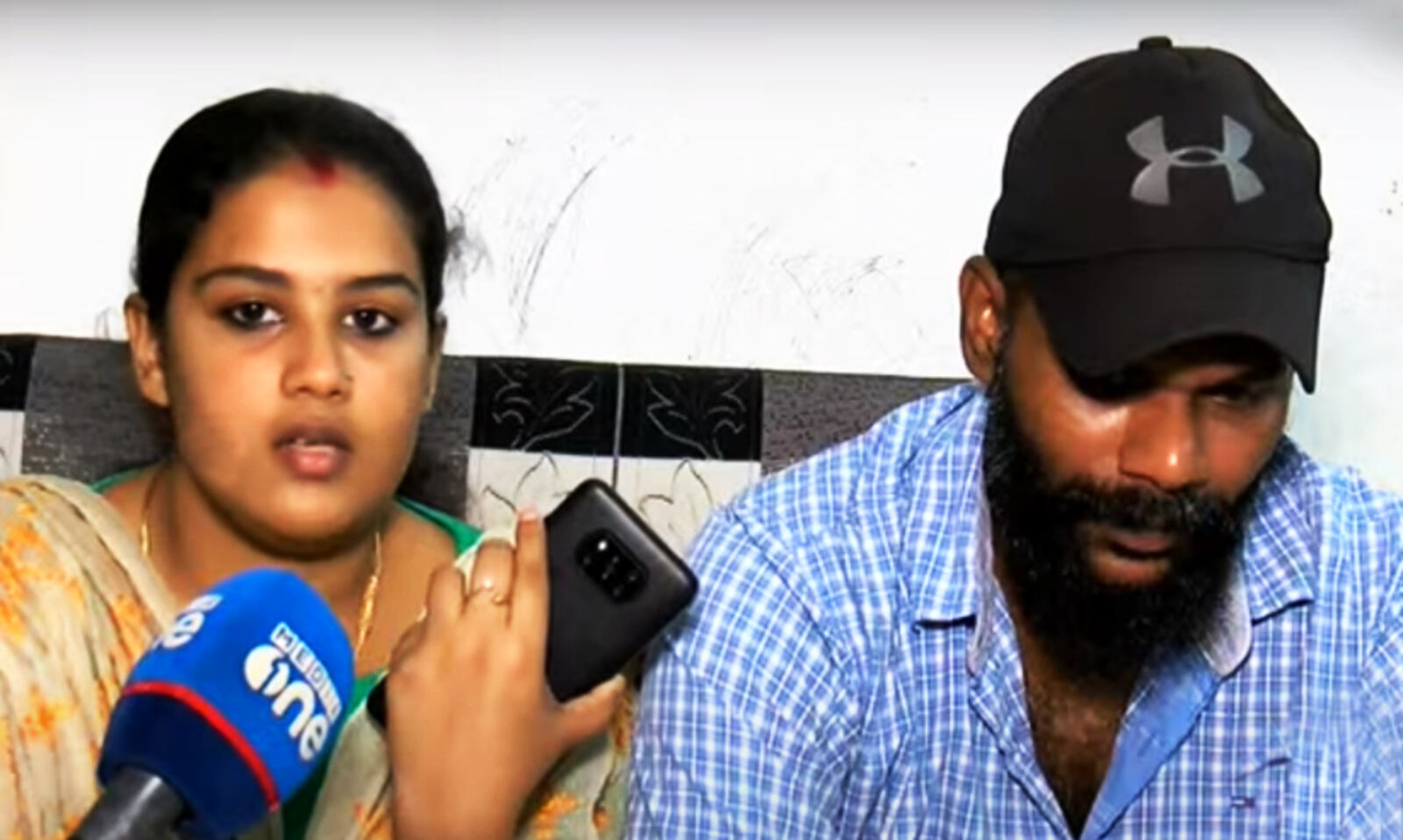
Thus far, the matters sound like the plot summary of old 1950s Malayalam films. You might recall that the very first Malayalam film to win a national award, Neelakkuyil (Dir. P. Bhaskaran and Ramu Kariat, 1954) featured a Dalit mother who had to die and her (relatively) upper caste Nair lover. A nuclear family unit with a Dalit mother and a Nair father would not be envisioned or represented on the 1950s silver screen in Kerala. Neeli dies melodramatically and tragically in child birth while a kindly Nair postman, the messenger of social reform, played by P. Bhaskaran himself, brings up the baby boy as his own. When the film ends, the boy’s father and his new, “correct” caste wife are publicly shamed into accepting his son as his own. Bring him up as a good human being, the postmaster tells the new parents.
But Anupama and Ajith are not Neeli and Sridharan Nair and this developing story is not following that tragic script. Anupama and Ajith are holding the Kerala government accountable for the whereabouts of their missing infant son. Since the case first went public in October 2021, Anupama has been relentlessly keeping the issue of her abducted son on the forefront of public awareness through media interviews, social media advocacy, and protests and strikes in front of the alleged offices implicated in the child abduction including the on-going indefinite hunger strike in front of the Kerala Secretariat building.
What is striking about the Anupama case is the tacit refusal of the state government machinery for nearly one whole year to help a young mother whose own father abducted her child. Anupama’s father Jayachandran, Anupama herself, and Ajith are all active members of the political left in its student divisions and labor unions in Kerala.
Anupama and Ajith who began the search for their abducted son in January 2021 filed a formal police complaint in April 2021 though no FIR was processed even after repeated and extensive police interrogations. According to Anupama, her father’s position in the party prevented her from getting justice. Six months after Anupama first gave her testimony to the police, media reports that in late October “police were forced to register a case against her parents and four others.” No arrests have been made yet.
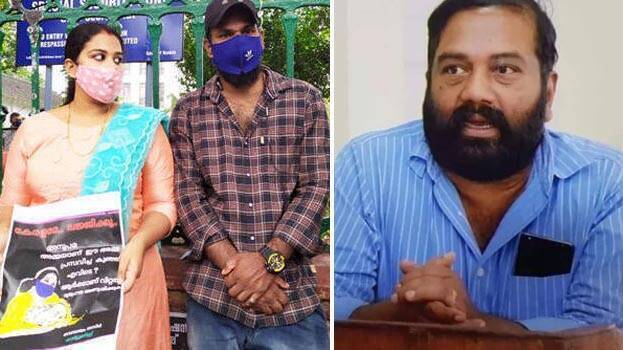
Anupama and Ajith had met with several important CPI-M party leaders and members to seek help in finding their missing infant since no police response was forthcoming in the initial stages. The names of the doors they knocked on are impressive: CPI-M politburo members Brinda Karat, M. A. Baby, Kerala Chief Minister Pinarayi Vijayan, police chief Loknath Behra, Kerala’s Child Welfare Council (CWC), Kerala State Women’s Commission, CPI-M district secretary et al.
Anupama’s and Deepa P Mohanan’s cases make one wonder what material purpose or benefit the much publicized state-assisted 2019 entry for women in Sabarimala Temple did for women in Kerala? Evidently, the gods do not seem interested in helping out one of their women, or if they plan to, they seem to be taking their own time.
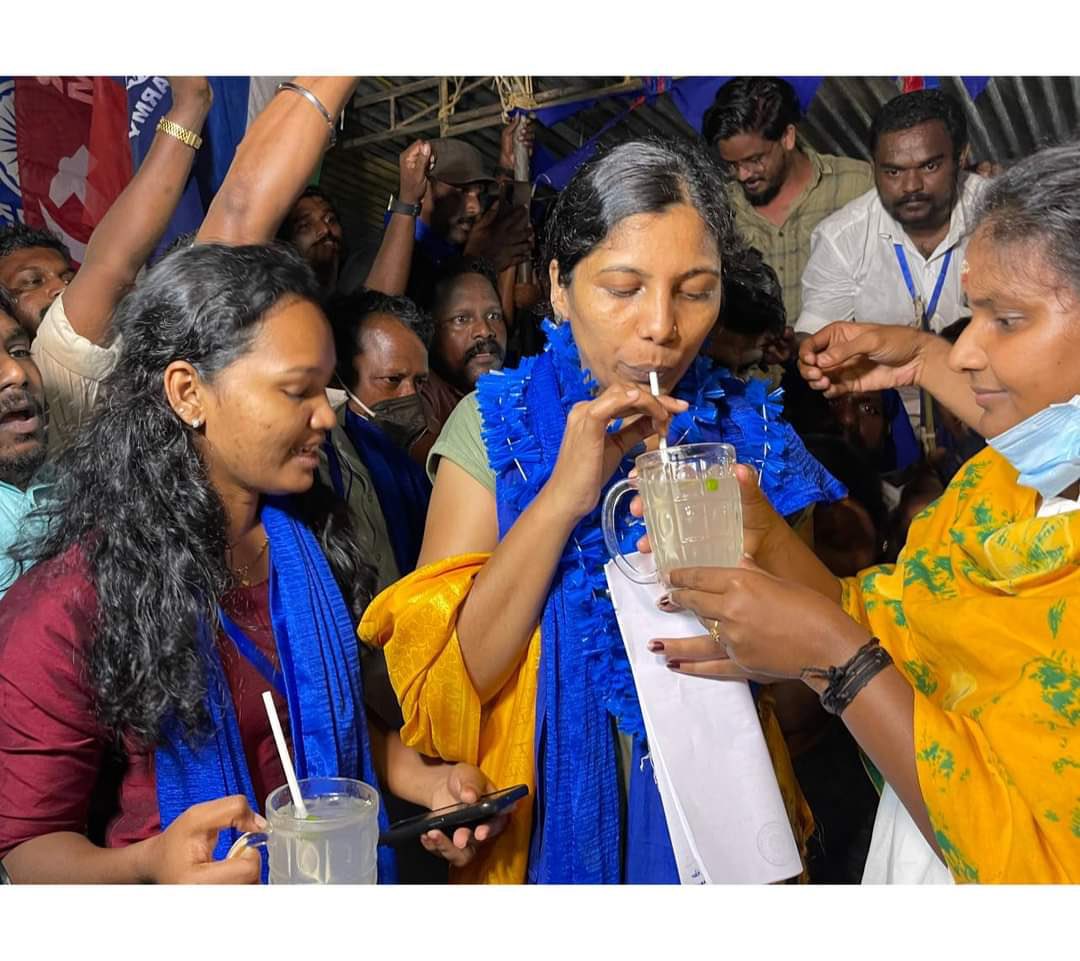
It might not be inaccurate to infer from both Anupama’s and Deepa P Mohanan’s cases that women’s empowerment in whatever shape or form, more often than not, in Kerala, is intentionally and tendentiously misused by parties in power to whitewash historical establishment, and ongoing far more insidious, all-consuming and extremely immoral devastations perpetrated in the name of caste.
It might not be inaccurate to infer from both Anupama’s and Deepa Mohanan’s cases that women’s empowerment in whatever shape or form, more often than not, in Kerala, is intentionally and tendentiously misused by parties in power to whitewash historical establishment, and ongoing far more insidious, all-consuming and extremely immoral devastations perpetrated in the name of caste.
Kerala society appears to be far more caste-oriented than it has ever been, even as the class structures have widened their company grounds to accommodate the new and thrilling neo-liberal glitz and glam.
A political party cannot claim intersectional ethics for itself merely with party membership and election campaigns. It has to be willing to remove its blinders and look squarely at how intersectional identities of caste, along with gender, in Kerala, dictate advantages and disadvantages in equitable access to justice, education, employment, and autonomy of the body and mind to any woman or man.
Realpolitik or not, the Kerala government is morally responsible to answer Anupama’s demands to locate her infant son and return him free from harm to her at the earliest. Additional inaction or delayed action would add Kerala’s name to barbaric civilizations that consume its own citizens.
